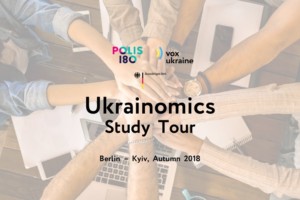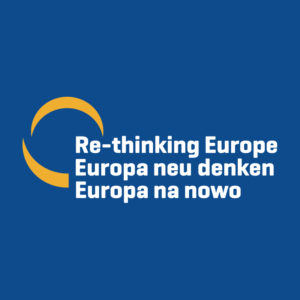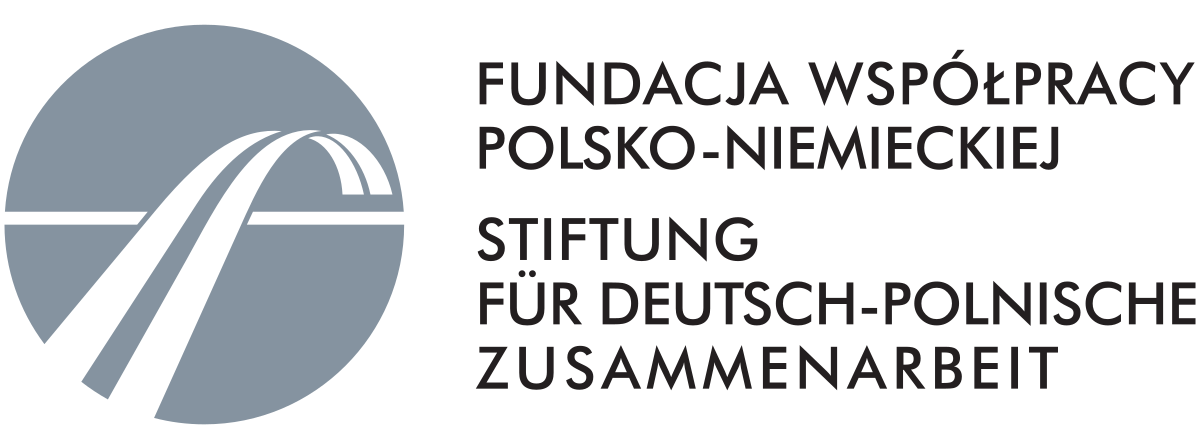A Comment by Tornike Bakakuri
A Comment by Tornike Bakakuri
In how far does the UN Agenda on Women, Peace and Security provide opportunities for conflict management and transformation in Ukraine and Georgia? Why is it important to move beyond Women, Peace and Security towards a more inclusive ‚gender, peace and security‘? Find the answers in our report!
Bei der sechsten Veranstaltung unserer Reihe „Polis kocht! Außen- und Europapolitik geht durch den Magen“ diskutierten wir mit dem Beauftragten der Bundesregierung für zwischengesellschaftliche Zusammenarbeit mit Russland, Zentralasien und den Ländern der Östlichen Partnerschaft, Dirk Wiese.
In der zwölften Folge von Café Amerikana präsentieren wir euch eine akustische Zusammenfassung einer Poliskocht-Veranstaltung mit Kommentaren und Einschätzungen unseres Gastes Prof. Dr. Andrew Ullmann, Mitglied der Parlamentariergruppe USA und anderen Teilnehmern.
Am 22. August 2018 fand der mittlerweile fünfte Teil der Veranstaltungsreihe „Polis kocht! Außen- und Europapolitik geht durch den Magen“ in der Mahlo Brunch Bar statt. Bei diesem Format wird das gemeinsame Kochen und Diskutieren mit einem politischen Entscheidungsträger, jeweils passend zur Thematik des Abends, in den Mittelpunkt gerückt.
A Comment by Frauke Seebass
Since the end of the Cold War the EU has increasingly built its relations towards enlargement and neighboring states on values such as democracy and the rule of law. Those values are now, however, more and more under attack within the EU. Our paper examines how illiberal developments within the EU might affect the EU’s normative power and could also directly impact on its neighbors.
Ein Beitrag von Esther Kern, Felix Stoßmeister und Laura Menzel
Am 2. Oktober 2018 diskutierten wir mit Dr. Anna Antonakis, wie sich der tunesische Feminismus über die letzten Jahrzehnte entwickelte und wie Frauen als Akteur*innen der tunesischen Transformation auftreten. Lest hier mehr!
Ein Interview mit Dr. Constanze Stelzenmüller von Esther Kern & Laura Menzel
In the discussion about US President Donald Trump’s announcement to withdraw from the INF there are two seemingly contradictory truths. The first one lies in Russia breaching its obligations under the treaty. The second truth is that the US is making a mistake to retreat from the INF nonetheless.
An Opinion by Alexander Sorg
Ein Beitrag von Florian Gawehns
Ein Beitrag von Robert Fisher

Polis180 and the Ukrainian think tank Vox Ukraine (Kyiv) are pleased to announce a call for applications for participation in the project
„Ukrainomics“ – Enhance the Economic Debate in Ukraine!
Comprising a meeting in Kyiv (18-20.10.18), a study tour to Berlin (7-11.11.2018) and a workshop in Kyiv (28.11-01.12.18).
The Revolution of Dignity and the War in Donbass have become a catalyst for serious transformations in society. However, Ukraine stil lacks an intensive public discussion of the shortcomings and benefits of the proposed reformist course and its possible alternative options. An evidence-based analysis and an in-depth debate about different options for economic and social policy will improve the quality of economic decisions in Ukraine and have a positive impact on the welfare of millions of Ukrainians. And it is crucial in terms of involving the population in the process of reform.
The idea of the project is to explain different economic views and concepts to the Ukrainian public and to involve representatives of academic and civil society, as well as the public, in their discussion. Within the framework of a study tour to Berlin and a workshop in Kyiv, we strive to look at the key problems of the Ukrainian economy from different perspectives, reasonably considering all the pros and cons of specific decisions. And also we would like to promote citizens‘ opportunities to forming and expressing their opinions on different matters related to the reforms.
Read more about the project here.
We invite young economists (or graduates of neighbouring fields, e.g. sociology, politics, law), experts, economic/civil society activists and public servants from Ukraine to take part in a study trip to Berlin. You will have the opportunity to explore the German transformational experience and meet representatives of various organizations with very diverse perspectives on the economy. After the study tour, participants will produce short video clips (under instruction from media professionals) that reveal different concepts and views on important and controversial economic issues. English is the working language of the project, but videos will be produced in Ukrainian with English subtitles.
01 September – 31 December 2018
The project is funded by the German Federal Foreign Office in the framework of the programme “Expanding Cooperation with Civil Society in the Eastern Partnership Countries and Russia”.
Ein Beitrag von Orchan Ali-sade
Bei „Polis kocht!“ am 15.08.2018 ging es um Frauen & Landwirtschaft in der Entwicklungspolitik. Schaut hier das Video und lest unseren Bericht.
Within the “Allez l’Europe! // Vorwärts Europa!” all-day event at the Institut français Berlin on 23 June, Polis hosted an interactive panel discussion and workshop on Franco-German priorities in European defence. Thereafter, a workshop with 20 participants generated concrete proposals for the next steps forward.
Workshopteilnahme EUROPA NEU DENKEN – EUROPA NA NOWO

Seit der Unterzeichnung des Nachbarschaftsvertrages 1991 stand es um die polnisch-deutschen Beziehungen nicht schlechter. Insbesondere die deutsche Migrationspolitik sowie der Umgang mit Russland sind in der polnischen Gesellschaft hoch umstritten, während in Deutschland die Politik der PiS-Regierung und deren Entfernung von europäischen Werten auf Unverständnis stößt. Viele dieser Themen sind in erster Linie europäisch, belasten aber insbesondere die bilateralen Beziehungen zwischen Polen und Deutschland.
Um den polnisch-deutschen Beziehungen im europäischen und bilateralen Kontext eine neue Perspektive zu geben, organisiert Polis180 zusammen mit Global.Lab (Warschau) einen 1,5-tägigen Workshop unter dem Titel „Europa neu denken – Europa na nowo“. Stattfinden wird der Workshop vom
9. bis 10. November in Warschau
(Reise- und Übernachtungskosten werden übernommen)
Nach einer kurzen Bestandsaufnahme, in der verschiedene europäische Politikfelder und deren Bedeutung für die deutsch-polnische Zusammenarbeit beleuchtet werden, erarbeiten wir gemeinsam konkrete Handlungsempfehlung. Ziel ist es Potenziale für gemeinsame Projekte sowie Politikempfehlungen zu identifizieren. So wollen wir eine deutsch-polnische Agenda für die Zukunft formulieren. Die Handlungsempfehlungen werden im Anschluss an den Workshop in einem gemeinsamen Policy-Paper veröffentlicht.
Wer kann sich bewerben?
Wie kannst du dich bewerben?
Bitte verfasse ein Motivationsschreiben (max. 1 Seite), in dem du dein bisheriges Engagement im deutsch-polnischen Kontext beschreibst und die folgenden Fragen beantwortest:
Sende bitte dein Motivationsschreiben und deinen CV unter Angabe deines vollen Namens in der Betreffzeile an susanne.zels@polis180.org.
Die Bewerbungsfrist endet am 17 September.
************
Das Projekt wird gefördert durch


Die aktuellen Schwierigkeiten im deutsch-russischen Dialog zeigen, dass oft Begriffe wie Demokratie, Zivilgesellschaft, Toleranz etc. unterschiedlich verstanden oder ausgelegt werden. Teilnehmer und Teilnehmerinnen erhalten in diesem Workshop die Gelegenheit, sich mit den Unterschieden und Gemeinsamkeiten in ihrem Verständnis dieser komplexen Begriffe auseinanderzusetzen.
Polis, Ideas for Change and the IDP Women Association „Consent“ invite applications for two workshops on women, peace and security in Kyiv and Tbilisi this fall. Apply now!
Am 25. Mai 2018 lud Polis 180 zur Auftaktveranstaltung der Reihe „Polis kocht! Außen- und Europapolitik geht durch den Magen“. Wir diskutierten mit Margrit Zauner, Leiterin der Abteilung Arbeit und Berufliche Bildung der Berliner Senatsverwaltung für Integration, Arbeit und Soziales.
Die (neu) entfachte Debatte um Paragraph §219a, das Referendum in Irland und die Abtreibungsdebatte in Polen haben wir zum Anlass genommen, um in der Schwarzkopf-Stiftung über reproduktive Rechte in europäischer Perspektive zu diskutieren. Lest hier mehr!
Ein Beitrag von Felix Stoßmeister
On 5 June 2018 we organized a storytelling workshop for Polis members. Read our recap and find out how to become a good storyteller!
A Correspondence between James Hall and Ulrich Czeranka
On 11 July we organized a Polis teatime with Dr. Tecla Namachanja Wanjala, former Commissioner of the Truth, Justice and Reconciliation Commission Kenya (TJRC-Kenya). Read more about our discussions in this report!
Apply now for our workshop and conference on European values, taking place in Tbilisi from 17-20 September 2018!
Ein Beitrag von Robert Fisher
On 14 June 2018, EULEX Kosovo, the largest EU civilian mission to date, officially came to an end. With the stakes set high and the failure to protect civilian lives in Bosnia still painfully looming in the background, EULEX severely put to test the principles agreed upon in the CSDP. As Frauke Seebass argues in Polis Brief #5, the EU has used these lessons learned to reinvented its role in the region. 2018 has brought renewed momentum for EU cooperation with the Western Balkans as concrete strategies set out to pave a rocky road ahead.
In der elften Folge von “Café Amerikana” diskutieren wir mit José Angel Quintanilla, Politikberater in Mexiko-Stadt über die bevorstehenden Wahlen in Mexiko. José gibt uns einen Überblick über die Kandidaten, deren Erfolgsaussichten und historischer Bedeutung im mexikanischen Kontext.